
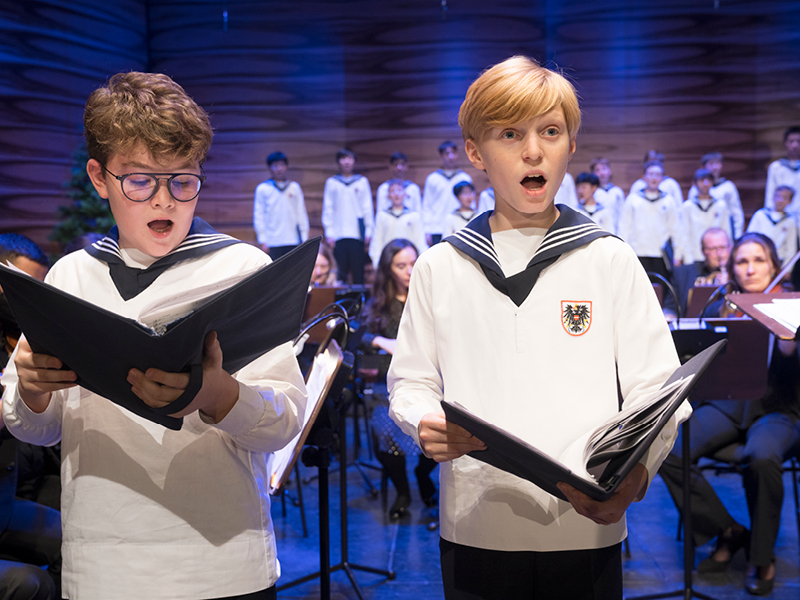
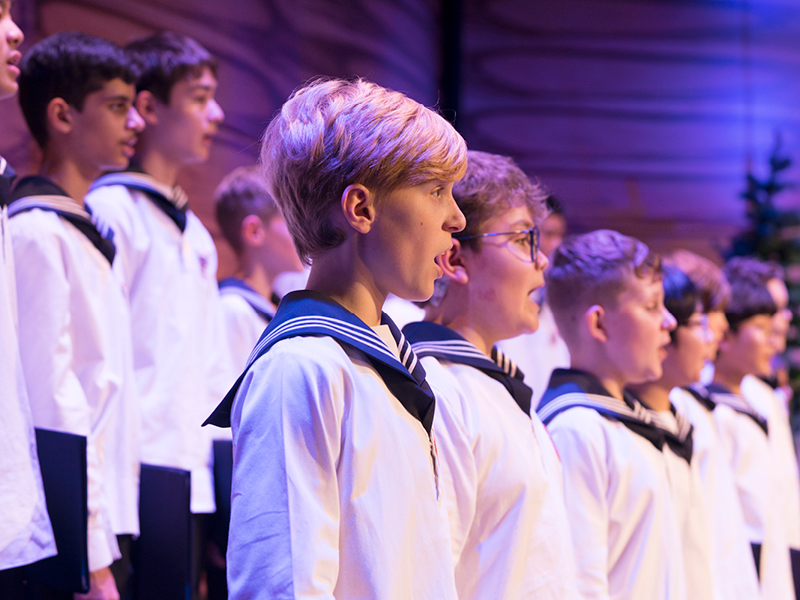
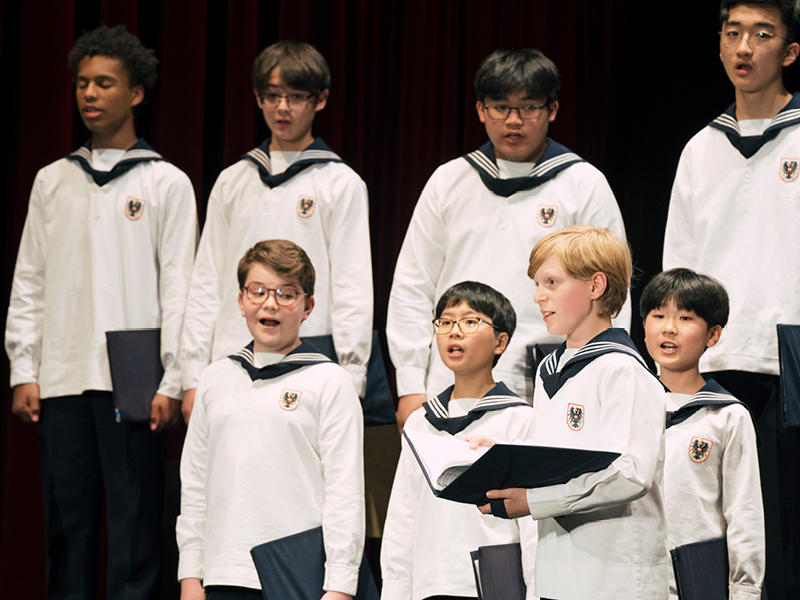
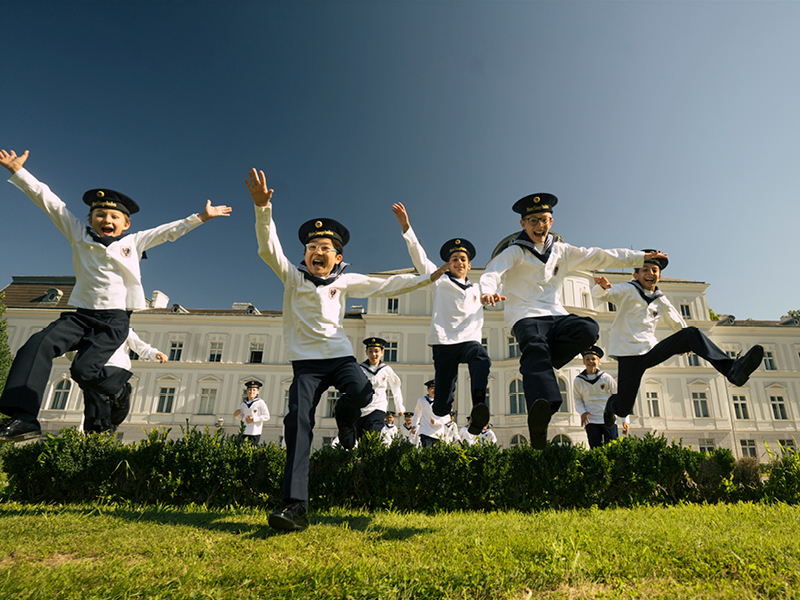
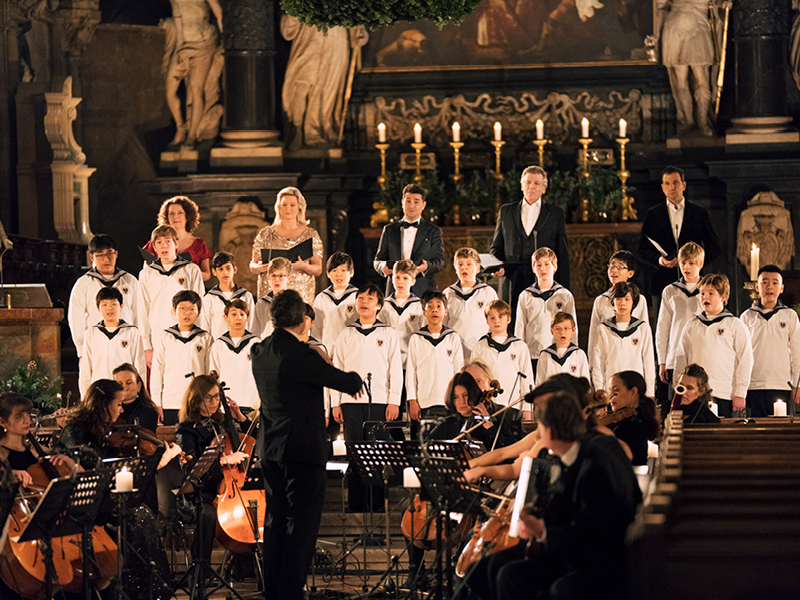
- This event has passed.
Vienna Boys Choir
The Vienna Boys Choir has been delighting music lovers across the globe for six centuries with their purity of tone, distinctive charm, and diverse repertoire, which includes everything from medieval to contemporary to experimental music.
Tuesday, Nov 15, 2022, 7 p.m.
tickets
- A: $75
- B: $65
- C: $55
- D: $45
MEMBER BENEFIT: Members receive 10% off on all tickets to this performance.
About the Event
With more than 100 members, The Vienna Boys Choir has delighted music lovers across the globe for six centuries with their purity of tone, distinctive charm, and diverse repertoire, which includes everything from medieval to contemporary to experimental music. These gifted musicians with voices of unforgettable beauty are part of four touring choirs that hail from dozens of nations and together give more than 300 concerts a year around the world.
The Vienna Boys Choir can trace its history as far back as the 13th century, but it was formally established at Vienna’s Imperial Chapel in 1498 by Holy Roman Emperor Maximilian I. Today’s Vienna Boys Choir comprises talented young singers from all over the world, including boys from Austria, Cambodia, China, France, Germany, Iceland, Italy, Japan, Korea, New Zealand, the Philippines, and the United States.
Together Program
Oliver Stech, conductor
“Come, Ye Sons of Art” (Birthday Ode for Queen Mary II), Z. 323 (1694) — Henry Purcell (1659–1695); words ascribed to Nahum Tate (1652–1715)
“Cantate Domino” (“Sing to the Lord”) — motet for four voices a cappella — Hans Leo Hassler (1564–1612)
“Den Tod niemand zwingen kunnt” (“No One Could Overcome Death”) — versus 2, from: Cantata BWV 4, Christ lag in Todesbanden— Johann Sebastian Bach (1685–1750); words: Martin Luther (1483–1546)
“Mi lagnerò tacendo” (“I Languish in Silence”), Notturno K. 437 (1783) from Siroe — Wolfgang Amadeus Mozart (1756–1791); words: Pietro Metastasio (1689–1782); arr. Gerald Wirth
“Abendlied zu Gott” (“Evening Song for God”), Hob. XXVc: 9 (1796) — Joseph Haydn (1732–1809); words: Christian Fürchtegott Gellert (1715–1769) — solo to be announced from the stage
“Widerspruch” (“Contradiction”), D. 86 — Franz Schubert (1797–1828); words: Johann Gabriel Seidl (1804–1875)
“Esti dal” (“Evening Song”) (1930) — Zoltán Kodály (1882–1967)
“Nigra sum sed Formosa” (“I am Black and Beautiful”) (1942) — Pau Casals (1876–1973); words: Song of Songs 1:4
“O salutaris hostia” (“O Saving Sacrifice”) — Ēriks Ešenvalds (*1977); words: Thomas Aquinas (c. 1225–1274)
“Joshua Fit the Battle of Jericho” — spiritual, arr. Rollo Dilworth
—INTERMISSION—
“Kaval sviri” (“A Kaval flute plays”) (1979) — Bulgaria — Petar Liondev (1936–2018); arr. Tanya Parvanova
“Vem kan segla förutan vind” (“Who Can Sail Without Wind?”) — Sweden; folk song from the Åland Islands — arr. Gerald Wirth
“Dona, Dona” (“Dos kelbl”) (Hargail version; from the musical Esterke) (1940–41) — ©EMI Mills Music Inc.; by kind permission of EMI Music Publishing Germany GmbH — Sholom Secunda (1894–1974), Aaron Zeitlin (1898–1973), Arthur Kevess, Sheldon Secunda, Teddi Schwartz
“La Paloma” (“The Dove”) — Canción americana — Sebastián de Yradier (1809–1865); arr. Gerald Wirth
“Niška banja” (“The Hot Springs of Niš”) — jocular song from Serbia — arr. Gerald Wirth
“Wellerman” (“Soon May the Wellerman Come”) — whaling shanty from New Zealand — arr. Gerald Wirth
“Wann du durchgehst durch’s Tal” (“When You Walk Through the Valley”) — Austria; love song from Carinthia — arr. Gerald Wirth
“Es gibt schene Wasserl” (“There are Beautiful Waters”) — dance from Mühlviertel, Upper Austria — arr. Gerald Wirth
“Wien, du Stadt meiner Träume” (“Vienna, City of My Dreams”), op. 1 (1912) — Rudolf Sieczyński (1879–1952); arr. Gerald Wirth
“Feuerfest!” (“Fireproof!”) French polka, opus 269 — Josef Strauss (1827–1870); words: Rudolf Effenberger / Elke Wirth; arr. Gerald Wirth
“Wiener Blut” (“Viennese Spirits”) Waltz, op. 354 (1873) — Johann Strauss II (1825–1899); arr. Helmuth Froschauer
PROGRAM IS SUBJECT TO CHANGE
